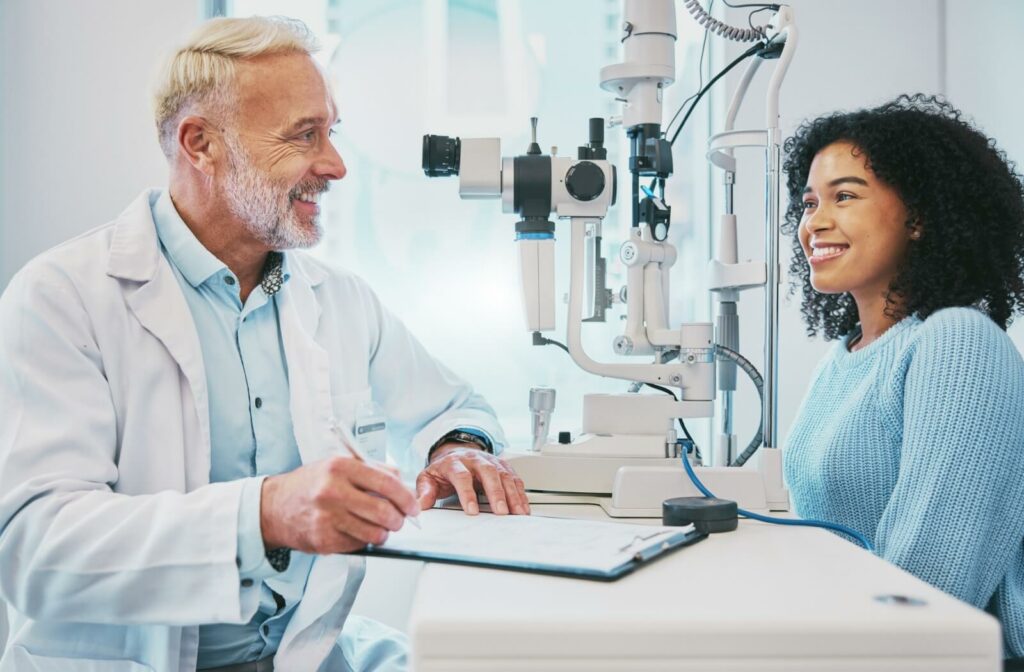All Categories
Featured
Table of Contents

Normal eye assessments are vital for keeping excellent vision and identifying potential eye health problems early. However, the regularity of these examinations can vary substantially based on a person's age, way of life, and total health and wellness. Comprehending the advised timetable for eye examinations can assist ensure that people of every ages receive ideal care and tracking for their eye health and wellness.
Infants and Toddlers (0-2 Years)
For babies and toddlers, eye examinations are essential for discovering any type of potential vision troubles early. The American Academy of Ophthalmology recommends that a youngster's initial eye test must occur at around 6 months old. Throughout this preliminary visit, the eye treatment professional will examine the child's visual growth and check for any kind of evident eye concerns.Following this first test, it is suggested that kids have one more eye exam at age 3. This visit will certainly concentrate on assessing the child's total aesthetic function, including eye positioning and the capability to track things. If no issues are detected, the next examination must be scheduled before the youngster starts institution, commonly around age 5 or six.
School-Aged Children (6-18 Years)
As soon as youngsters reach college age, regular eye exams must be scheduled every one to 2 years. Vision is vital for finding out and advancement, and several schools conduct vision testings. These screenings do not replace an extensive eye exam by an eye treatment specialist.For youngsters entailed in tasks or sports requiring significant aesthetic focus, yearly eye examinations might be suggested. Furthermore, if a kid exhibits indications of vision troubles-- such as trouble reviewing, squinting, or frequent migraines-- a check out to the eye doctor ought to be scheduled as soon as possible.
Young Person (19-39 Years)
Young person typically have fewer vision changes than older age groups, but regular eye tests remain essential. The general suggestion is to schedule an eye examination every two years throughout this duration. Nonetheless, individuals with particular risk variables-- such as a household history of eye illness, diabetes, or those who wear call lenses-- ought to think about annual eye exams.Furthermore, those that invest considerable time on electronic gadgets may experience electronic eye stress. If signs and symptoms such as dryness, exhaustion, or obscured vision take place, it might be wise to see an eye care professional quicker.
Adults (40-64 Years)
As people enter center age, the probability of establishing vision problems rises. Grownups aged 40 to 64 need to arrange eye tests each to 2 years. This age group may start to experience presbyopia, a natural age-related condition that makes it challenging to focus on close objects. Eye exams can likewise help detect various other typical age-related problems such as glaucoma, cataracts, and macular deterioration.If individuals in this age team have risk aspects like hypertension or diabetes mellitus, they may need more frequent exams to monitor their eye health and wellness carefully.
Seniors (65 Years and Older)
For elders, regular eye exams become even more important. The American Optometric Organization recommends that people aged 65 and older have an eye examination at the very least annually. Older grownups go to a greater danger for different eye diseases, including cataracts, glaucoma, and age-related macular degeneration. Early detection and therapy of these problems can stop vision loss and improve the lifestyle.Verdict.
Recognizing the proper timetable for eye tests based upon age is important for maintaining ideal eye health and wellness throughout life. From infants to senior citizens, normal eye examinations play a vital function in discovering issues early and making sure that vision stays sharp. By sticking to these standards and seeking advice from an eye care expert, individuals can take aggressive actions toward maintaining their vision and general health. Whether it's a kid's first check out or an elderly's yearly exam, prioritizing eye care is a financial investment in lifelong wellness.Table of Contents
Latest Posts
Host Your Perfect Occasion: Location Rental Options for Every Event
Published Mar 19, 25
1 min read
Host Your Perfect Occasion: Venue Rental Choices for Every Occasion
Published Mar 13, 25
1 min read
The Boogaloo Sports Bar & Grill at FunCity Resort Hotel: Where Fun Meets Taste
Published Feb 09, 25
1 min read
More
Latest Posts
Host Your Perfect Occasion: Location Rental Options for Every Event
Published Mar 19, 25
1 min read
Host Your Perfect Occasion: Venue Rental Choices for Every Occasion
Published Mar 13, 25
1 min read
The Boogaloo Sports Bar & Grill at FunCity Resort Hotel: Where Fun Meets Taste
Published Feb 09, 25
1 min read